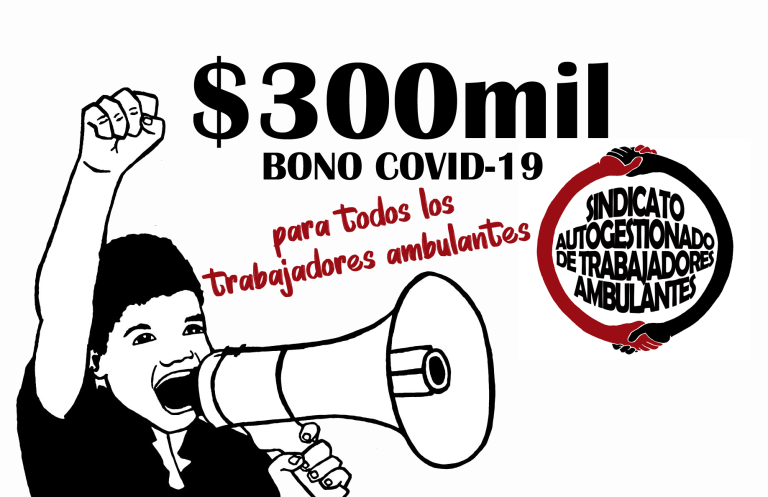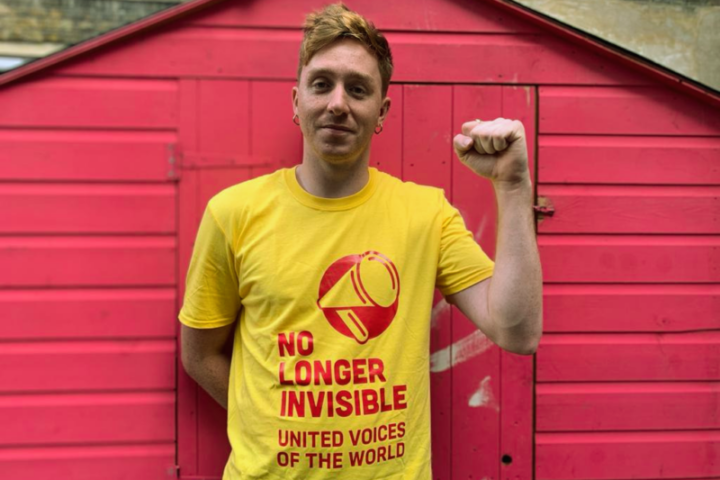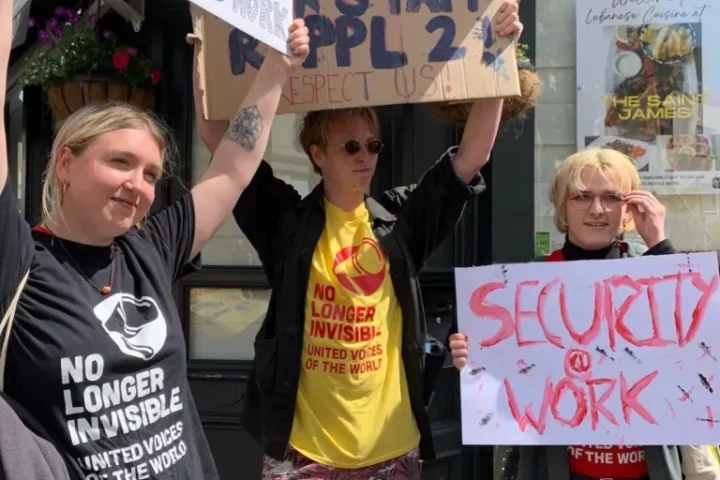President Sebastián Piñera’s hide was well and truly saved when Covid-19 interrupted months of protests which had nearly kicked his government out of power — but lockdown doesn’t mean people have stopped organising.
The Sindicato Autogestionado Trabajadores Ambulantes (SATA — the Self-managed Union of Street Workers) was founded last week to provide a focal point for people selling and labouring on the streets, who have been left with no way to earn income and no support during the lockdown period.
Street and travelling workers have been hit particularly hard by the sudden disappearance of street movements and the inevitable malicious reclamation of public space by the carabineros. Cops roaming with little resistance and legal impunity have been taking the opportunity to make street sellers’ lives miserable while the President struts around empty plazas showing how “in charge” he is.
Organised on non-hierarchical principles, SATA has kicked off by demanding a 300,000 peso (£284) allowance be paid to all street and migrant workers through the pandemic regardless of circumstances, whether or not they have papers, to offset the otherwise total loss of income facing working class Chileans. In a statement, the union said:
In various cities in the country, a multitude of workers and workers are forced to live with the risk of losing their merchandise in seizures, suffering aggression and arrests by Carabineros and the possibility that business media will expose them as “potential criminals”, supposedly legitimising violence against him.
In (the city of) Concepción, for example, successive attempts have been made by travelling traders to formalise their activity with the municipality, however these offers have been unanimously rejected by parties such as the Socialists, UDI and Mayor Álvaro Ortiz’s Christian Democrats, who has been stubborn in his efforts to eradicate them.
Merchants and workers have said that it is need which makes them work on the streets, that it is not a hobby and political authorities must recognise this reality — indeed, that this is simply the reality of a country and a region that has no diverse employment opportunities beyond its exporters.
This is also the reality of a country with absolutely advantageous labour legislation for employers which, in contexts such as that caused by the Covid-19 pandemic or by the earthquake of February 2010, empowers them not pay wages and dismiss workers without compensation.
During this pandemic we are one of the most affected groups. Our families have to eat every day and the situation has become untenable.
The government is allocating millions to private banks and big companies, however, there was no help for street workers. And we do not claim anything that does not belong to us, because years we have been forced to pay costly fines along with VAT on all the goods we buy for our work. That is to say, far from being a gift, we demand that you return to us what has historically been stolen.
We call on all people who work on the streets to organise themselves to carry out this campaign. Difficult months will come, especially with the arrival of winter. It is time to be united and organised. Only the people help the people. Against the pandemic and the government’s ambition — mutual support, organisation and direct action.




